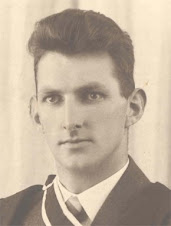While this will "out" in the memoirs it is interesting to see references such as the following emerging in current research which recognises the roles Herbert played in the Peruvian community. Educación, Año I N.° 1, Mayo 2004; pp. 7- 19 Translated with some Google tools - which will explain the roughness. Title of the article is "Historical Notes of the Faculty of Education". Herbert (it appears) is referenced in the following paragraph:
In 1931 Dr. Jose Antonio Encinas Franco was elected Rector of the University of San Marcos. Encinas initiated structural reform of the University. A college was created based on the academic partnership between the Faculties of Arts and Sciences and whose purpose was to give students knowledge of
general culture necessary for their studies of specialization in the School of Advanced Studies was engaged in The research and expertise composed of 19 institutes (the Institutes replace the powers), one of them Institute of Education: "The institute did not intend preparing secondary teachers. But provide the greatest possible contribution to Science Education through research, whose outcome should be used in the best school organization in the country". The curriculum of the Institute of Education, approved in September 1931, consisted of the following Chairs: Principles of Education, History, Educational, History of Universities, Organization and administration of universities, British Education History, History of German Education, Contemporary Issues in Education, Pedagogy, Experimental Statistics Applied to Education and seminars of Technical Education and higher Experimental and Pedagogy. The professors who supported the Institute on a pro bono basis were Drs. Richard Westermann, Jose Antonio Encinas, Alberto Giesecke, Villanueva Alfonso Pinillos, Carlos A. Velasquez, Herbert Money y Cipriano Angles Olvea.
We can lose sight of Herbert's qualifications very easily if we think of him as a missionary but he was trained as a teacher first, not a pastor. Which makes his later awards, recognising his theological contributions all the more remarkable. For Herbert, education was the vector by which people could hear and read the gospel, and in hearing and reading they might be saved.
Subscribe to:
Post Comments (Atom)





No comments:
Post a Comment